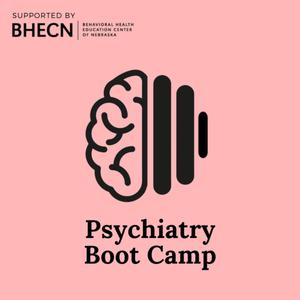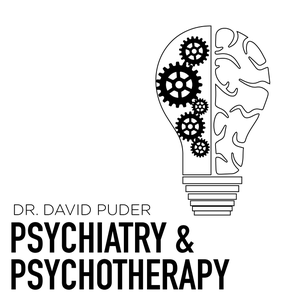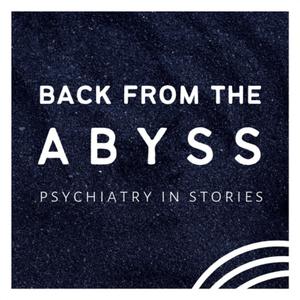
Psychiatry Boot Camp
Mark Mullen, MD
A current resident interviews world leaders in psychiatric education to bring you their clinical expertise. We cover need-to-know topics for anyone interested in learning the nuts and bolts of psychiatry.
- 1 minute 13 secondsSeason 3 Announcement & Call for Listener Questions10 January 2025, 4:59 pm
- 57 minutes2.11 Schizophrenia
Dr. Sameer Jauhar, Senior Clinical Lecturer in Affective Disorders and Psychosis at the Institute of Psychiatry, Psychology and Neuroscience, King's College, London, and as a Consultant Psychiatrist at Maudsley NHS Foundation Trust, introduces us to schizophrenia. Explore core clinical features of schizophrenia and what is known about the neuroscience of schizophrenia. We'll also discuss psychopharmacological and psychosocial treatment approaches, rooted in Dr. Jauhar's humanistic approach.
This episode is intended to supplement Dr. Jauhar's Lancet Seminar on Schizophrenia (2022).
Connect with Dr. Jauhar: @SameerJauhar
This is the final episode of Season 2! We welcome any feedback or ideas for future seasons! Email: [email protected]
29 April 2024, 11:19 pm - 1 hour 3 minutes2.10 Post-Traumatic Stress Disorder (PTSD)
Dr. Laura Watkins, Clinical Psychologist and Assistant Professor of Psychiatry at Emory University School of Medicine, introduces us to post-traumatic stress disorder (PTSD).
We walk though the diagnostic criteria and discuss how these symptoms can impact a person's day-to-day life. We then learn to conceptualize PTSD in terms of both classical and operant conditioning. Finally, we explain evidence based psychotherapies for PTSD and conclude with a primer on psychopharmacology for PTSD.
Essential references:
20 February 2024, 5:53 pm - 1 hour 8 minutes2.9 Anxiety Disorders
Dr. John Walkup, Chair of the Pritzker Department of Psychiatry and Behavioral Health at Ann and Robert H. Lurie Children’s Hospital of Chicago, Professor of Psychiatry at Northwestern Feinberg School of Medicine, and president-elect of the American Academy of Child and Adolescent Psychiatry, introduces us to anxiety disorders.
We discuss the phenomenon of normal, adaptive anxiety and contrast this with symptomatology that may warrant a diagnosis of an anxiety disorder. We learn to appreciate anxiety disorders from a developmental lens, discuss clinical pearls for building a therapeutic alliance with anxious patients, and explore psychotherapies for anxiety disorders. We also discuss psychopharmacological considerations for both SSRIs and benzodiazapines.
23 January 2024, 11:25 pm - 47 minutes 46 seconds2.8 Depressive Disorders
Dr. Roger McIntyre, Professor of Psychiatry and Pharmacology at the University of Toronto and Head of the Mood Disorders Psychopharmacology Unit at the University Health Network in Toronto, Canada, returns to introduce depressive disorders.
We differentiate normal "low mood" from conditions that warrant a psychiatric diagnosis. We discuss historical subtypes of depression and the current DSM specifiers for major depressive disorder. We review epidemiology, discuss the neurophysiology of depressive disorders, and then dive into treatment options.
18 January 2024, 5:16 pm - 1 hour 7 minutes2.6 Borderline Personality Disorder (Good Psychiatric Management)
Dr. Lois Choi-Kain, Director of the Gunderson Personality Disorders Institute at McLean Hospital and Associate Professor of Psychiatry at Harvard Medical School, introduces us to borderline personality disorder (BPD).
We discuss the prevalence, naturalistic course, and treatments for BPD. We explore BPD using the “Good Psychiatric Management” (GPM) model, which is intended to empower clinicians of all disciplines to manage patients with BPD effectively. We discuss the principles of GPM and walk through some examples of how it might be used in the clinical setting.
Book: Applications of Good Psychiatric Management for Borderline Personality Disorder: A Practical Guide (Check your academic library!)
References:
- (11:30) Grant BF, Chou SP, Goldstein RB, et al. Prevalence, correlates, disability, and comorbidity of DSM-IV borderline personality disorder: results from the Wave 2 National Epidemiologic Survey on Alcohol and Related Conditions. J Clin Psychiatry. 2008;69(4):533-545.
- (12:30) Trull TJ, Jahng S, Tomko RL, Wood PK, Sher KJ. Revised NESARC personality disorder diagnoses: gender, prevalence, and comorbidity with substance dependence disorders. J Pers Disord. 2010;24(4):412-426.
- (15:00) Gregory R, Sperry SD, Williamson D, Kuch-Cecconi R, Spink GL Jr. High Prevalence of Borderline Personality Disorder Among Psychiatric Inpatients Admitted for Suicidality. J Pers Disord. 2021;35(5):776-787.
- (20:45) Kernberg O. Borderline personality organization. J Am Psychoanal Assoc. 1967;15(3):641-685.
- (29:30) Choi-Kain LW, Finch EF, Masland SR, Jenkins JA, Unruh BT. What Works in the Treatment of Borderline Personality Disorder. Curr Behav Neurosci Rep. 2017;4(1):21-30.
- (33:00) Skodol AE, Gunderson JG, Shea MT, et al. The Collaborative Longitudinal Personality Disorders Study (CLPS): overview and implications. J Pers Disord. 2005;19(5):487-504.
- (33:00) Temes CM, Zanarini MC. The Longitudinal Course of Borderline Personality Disorder. Psychiatr Clin North Am. 2018;41(4):685-694.
18 January 2024, 5:15 pm - 59 minutes 30 seconds2.7 Bipolar Disorders
Dr. Roger McIntyre, Professor of Psychiatry and Pharmacology at the University of Toronto and Head of the Mood Disorders Psychopharmacology Unit at the University Health Network in Toronto, Canada, introduces us to bipolar disorders.
We discuss the key clinical features of bipolar disorders, the relationship between bipolar disorders and circadian rhythm, known pathogenesis, and some first line treatment options. We also contextualize the difference between "type I" and "type II" bipolar disorder, and explore the relationship between bipolar disorder and traumatic life experiences.
For more: Bipolar Disorders (Lancet Seminar)
7 January 2024, 4:38 pm - 1 hour 13 minutes2.5 Substance Use Disorders
Dr. Steve Delisi, Chief Medical Officer at YourPath Inc., Co-Associate Director at UC-Irvine School of Medicine's "Train New Trainers" Primary Care - Training and Education in Addiction Medicine Fellowship, Adjunct Professor at Hazelden Betty Ford Graduate School of Addiction Studies, walks through the fundamentals of substance use disorder.
We discuss the neurobiology of substance use disorder and explore the clinical use of "translational neuroscience." You'll also learn about the relationship between trauma and substance use, hear best practices for building a therapeutic alliance with this patient population, and catch a glimpse into future research on substance use disorders.
11 December 2023, 6:33 pm - 1 hour 46 minutes2.4 Delirium
Dr. Mark Oldham, Associate Professor of Psychiatry at University of Rochester Medical Center, President-Elect of the American Delirium Society, and Deputy Editor of the Journal of the Academy of Consultation-Liaison Psychiatry, takes us through a deep dive on delirium. This episode covers an enormous amount of material. We contrast encephalopathy and delirium before diving into the dangerousness of delirium and prevention strategies. We explore the neurobiology of delirium and tie it to validated assessment tools and treatment approaches. We also discuss areas for future research and learn to appreciate the evolutionary function that delirium serves.
References can be found on the episode website.
3 December 2023, 4:22 pm - 51 minutes 41 seconds2.3 Psychiatric Epidemiology
Dr. Erick Messias, Chair of Psychiatry at Saint Louis University, introduces us to the world of psychiatric epidemiology. Learn how epidemiological figures (that show up on training exams) are derived, and explore how epidemiology can help us to understand the naturalistic course of psychiatric illness. We also delve into the history of our diagnostic system and how it developed into the current model, and run through some of the most important findings to date in psychiatric epidemiology. Dr. Messias also explains how to approach every situation in life "as a 2 by 2 table," and we conclude with some wisdom about inserting meaning into daily psychiatric practice.
26 November 2023, 4:00 pm - 1 hour 15 minutes2.2 Medical Mimmickers
Dr. Kimberly Nordstrom, Past President of the American Association for Emergency Psychiatry and Associate Clinical Professor of Psychiatry at the University of Colorado, discusses the process of considering medical contributions to psychiatric illness. We discuss red flags that should guide clinicians to start thinking medically, explain the importance of systematically approaching a differential diagnosis, and provide a brief introduction to a few common medical-psychiatric conditions including autoimmune encephalitis, neuroleptic malignant syndrome (NMS), and serotonin toxicity ("serotonin syndrome").
Book: Quick Guide to Psychiatric Emergencies: Tools for Behavioral and Toxicological Situations (Check your academic library!!!)19 November 2023, 4:00 pm - More Episodes? Get the App
Your feedback is valuable to us. Should you encounter any bugs, glitches, lack of functionality or other problems, please email us on [email protected] or join Moon.FM Telegram Group where you can talk directly to the dev team who are happy to answer any queries.
 PsychEd: educational psychiatry podcast
PsychEd: educational psychiatry podcast
 Psychiatry & Psychotherapy Podcast
Psychiatry & Psychotherapy Podcast
 Psychopharmacology and Psychiatry Updates
Psychopharmacology and Psychiatry Updates
 The Carlat Psychiatry Podcast
The Carlat Psychiatry Podcast
 Back from the Abyss: Psychiatry in Stories
Back from the Abyss: Psychiatry in Stories
 NEI Podcast
NEI Podcast